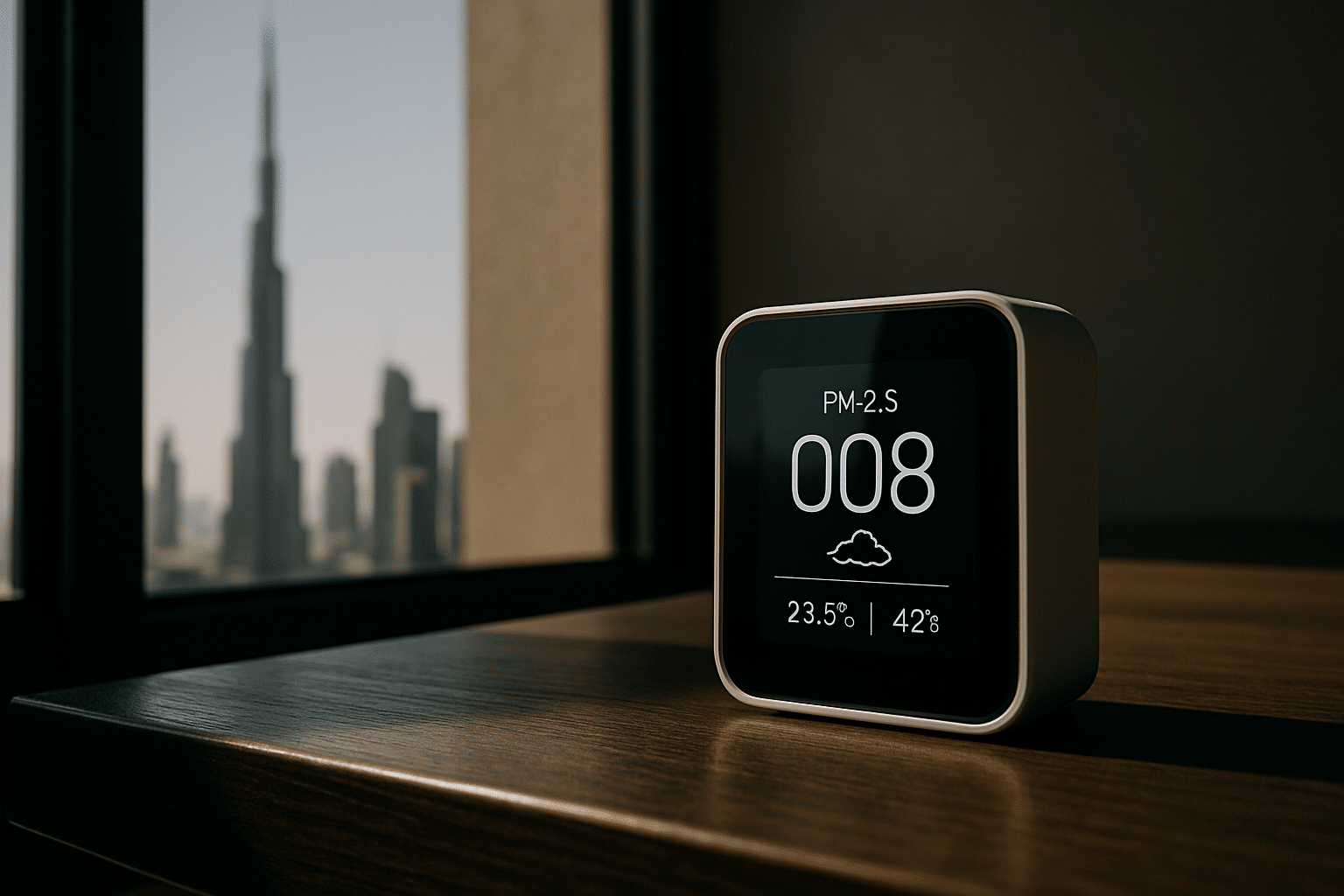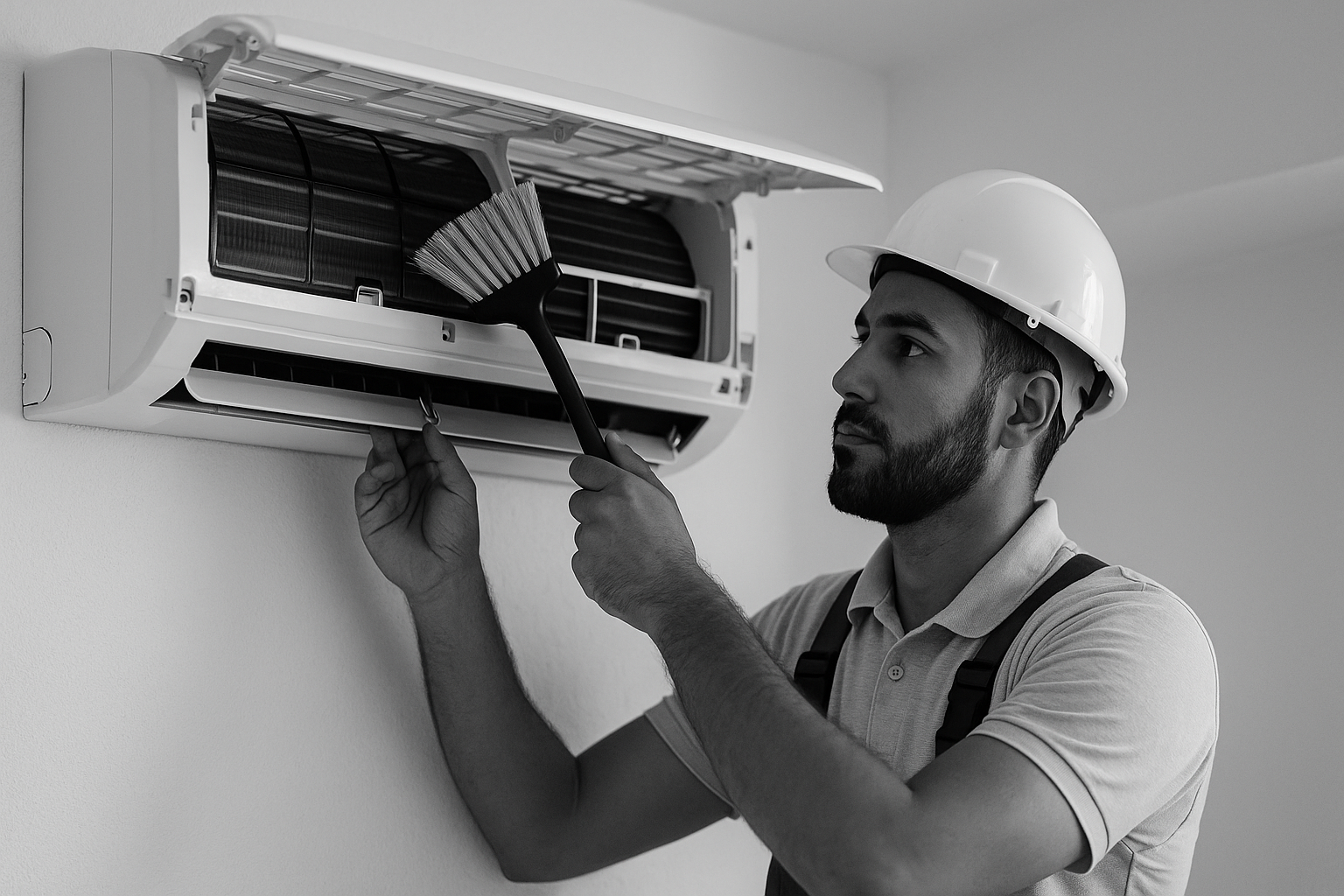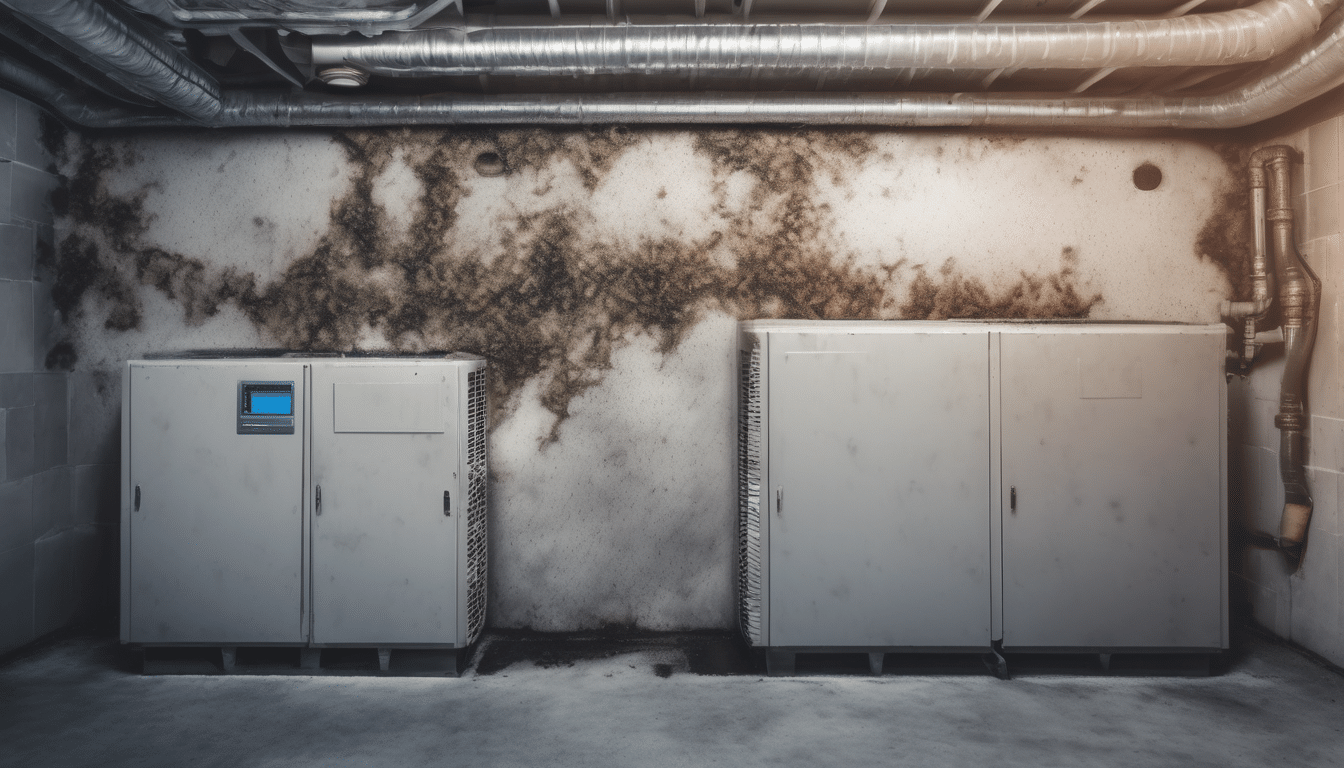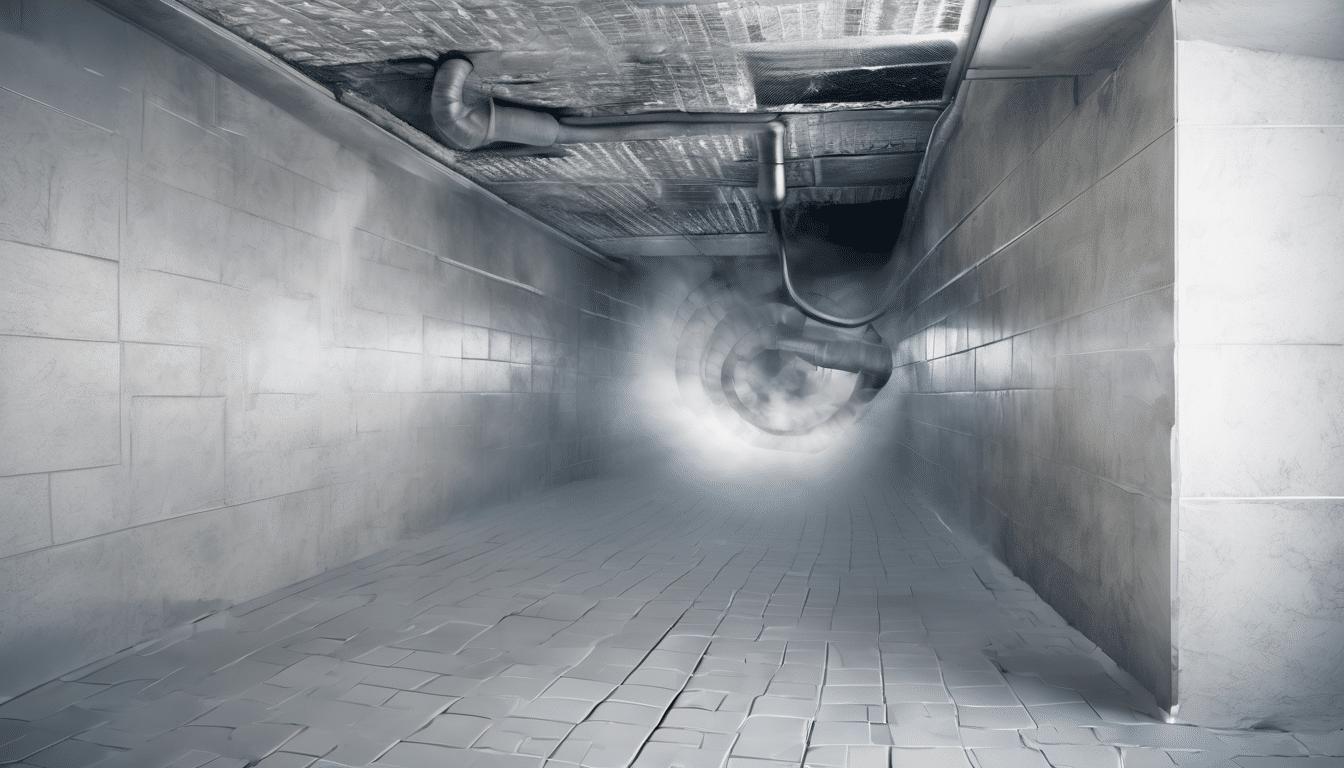
5 Effective Ways Indoor Air Quality Monitoring Technology dubai Transforms Your Environment
Table of Contents
Contents
- 1 Table of Contents
- 2 Introduction
- 3 FAQ on Indoor Air Quality Monitoring Technology dubai
- 3.1 What is indoor air quality monitoring technology?
- 3.2 How does indoor air quality monitoring technology dubai benefit residents and businesses?
- 3.3 Are there specific regulations in Dubai mandating the use of this technology?
- 3.4 Can indoor air quality monitoring technology dubai integrate with existing building management systems?
- 4 Key Benefits of Fresh Air Quality Improvements in Dubai
- 5 Practical Case Studies Showcasing Air Quality Monitoring Success
- 6 Smart Technologies Driving Indoor Air Quality in Dubai
- 7 Choosing the Right Indoor Air Quality Monitoring Solutions in Dubai
- 8 Advancements and Applications of Indoor Air Quality Monitoring Technology dubai
- 9 Practical Benefits of Implementing Indoor Air Quality Monitoring in Dubai
- 10 Choosing the Right Indoor Air Quality Monitoring Solution in Dubai
- 11 Conclusion
- 12 Conclusion
Introduction
Indoor air quality monitoring technology dubai is rapidly becoming a crucial component of property management and health safety strategies across Dubai. With urban development intensifying and indoor environments playing a pivotal role in wellbeing, understanding and improving indoor air quality (IAQ) is a critical priority for both residents and businesses in Dubai.
This article delves into frequently asked questions, fresh air quality improvement benefits, and real case studies demonstrating how indoor air quality monitoring technology dubai enhances living and working conditions. By the end, you’ll grasp why this technology is a must-have in Dubai’s fast-evolving built environments.
FAQ on Indoor Air Quality Monitoring Technology dubai
What is indoor air quality monitoring technology?
Indoor air quality monitoring technology refers to electronic systems and sensors designed to constantly measure pollutants such as carbon dioxide (CO2), volatile organic compounds (VOCs), particulate matter (PM2.5 and PM10), humidity, and temperature within enclosed spaces. In Dubai, this technology helps ensure compliance with local health and safety codes mandated by Dubai Municipality and Dubai Health Authority. For comprehensive protection, implementing **indoor air quality monitoring technology dubai** is often recommended.
How does indoor air quality monitoring technology dubai benefit residents and businesses?
Using indoor air quality monitoring technology dubai enables early detection of air contaminants and helps maintain healthier environments. This reduces respiratory issues, allergies, and boosts overall productivity in workplaces. Buildings in Dubai’s densely populated localities such as Business Bay and Dubai Marina increasingly rely on monitoring solutions for improved comfort and wellbeing.
Are there specific regulations in Dubai mandating the use of this technology?
Dubai Municipality has implemented strict regulations on maintaining acceptable indoor air standards, especially in commercial buildings and hospitality sectors. Compliance with these is often monitored through advanced indoor air quality monitoring technology dubai, ensuring alignment with Dubai’s health guidelines and ESMA standards.
Can indoor air quality monitoring technology dubai integrate with existing building management systems?
Yes, most modern systems are designed for seamless integration with building management platforms, enabling real-time data collection, alerts, and automated remediation processes like ventilation control or air purification – all improving indoor atmospheres in locations such as Medos and Arabian Ranches. These advanced features make **indoor air quality monitoring technology dubai** essential for smart building operations.
Key Benefits of Fresh Air Quality Improvements in Dubai
For effective management of environments in the city, **indoor air quality monitoring technology dubai** is paramount, offering several compelling benefits:
- Enhanced Health and Comfort: Cleaner air reduces respiratory irritants, allergens, and harmful particles, promoting healthier living and working spaces.
- Increased Productivity: Studies show a direct correlation between better indoor air quality and improved concentration, reducing absenteeism among Dubai’s workforce.
- Energy Efficiency: Intelligent monitoring enables systems to optimize HVAC operations dynamically, conserving energy without sacrificing air quality.
- Regulatory Compliance: Ensures adherence to Dubai Municipality standards and support audits with accurate, documented air quality data.
- Peace of Mind: Residents and commercial tenants appreciate transparency and proactive measures for their wellbeing.
Practical Case Studies Showcasing Air Quality Monitoring Success
Case Study 1: Dubai Marina Residential Towers
Several premium residential buildings in Dubai Marina have implemented indoor air quality monitoring technology dubai to tackle increasing concerns about air freshness amid high occupancy. By integrating sensor networks with centralized building management, these towers successfully reduced indoor pollutants by over 40% within six months. Tenant satisfaction surveys also reported improved comfort and fewer allergy complaints.
Case Study 2: Business Bay Office Complex
In Business Bay, a leading office complex installed real-time monitoring solutions that detect airborne particulates and VOCs. Alerts triggered enhanced ventilation responses and activation of advanced air purifiers. This initiative aligned with Dubai Health & Safety protocols and supported the employer’s wellness program by offering healthier workspaces.
Case Study 3: Hospitality Sector in Downtown Dubai
Hotels in Downtown Dubai have adopted specialized indoor air quality monitoring technology dubai to maintain premium air standards for guests. The system integrates with housekeeping and maintenance workflows, enabling rapid response to air quality alerts and continuous fresh air circulation, enhancing guest experience and reputation.
Smart Technologies Driving Indoor Air Quality in Dubai
Dubai’s push toward smart city initiatives has accelerated adoption of cutting-edge indoor air quality monitoring technologies. These include:
- IoT & Wireless Sensors: Compact, wireless sensors distributed through residential and commercial spaces provide continuous, granular air quality data.
- AI-Driven Analytics: Artificial intelligence algorithms analyze trends, predict pollution incidents, and suggest proactive measures.
- Mobile and Cloud Integration: Data is accessible remotely via smartphone apps and cloud platforms, allowing facility managers to monitor multiple sites from anywhere in Dubai.
- Automated Ventilation Control: Systems automatically adjust airflow, improving air exchange rates without manual intervention.
These innovations ensure that indoor air quality monitoring technology dubai is not just reactive but predictive and adaptive, aligning with Dubai’s vision of sustainable and smart urban living.
Choosing the Right Indoor Air Quality Monitoring Solutions in Dubai
Selecting the ideal indoor air quality monitoring technology dubai depends on various factors tailored to specific environments and goals. Consider the following guidance:
| Factor | Consideration |
|---|---|
| Type of Facility | Residential, commercial offices, hospitality, or educational institutions have varied IAQ needs and regulatory requirements. |
| Pollutants Monitored | Choose devices that detect relevant contaminants, such as PM2.5 for Dubai’s occasional dust storms or VOCs from indoor furnishings. |
| Integration Capabilities | Ensure compatibility with existing building automation systems for smooth control and reporting. |
| Real-Time Alerts | Critical for early detection and prompt action, reducing prolonged exposure risks. |
| Vendor Support | Preferred providers offer local support and installation services in Dubai to ensure system reliability. |
For Dubai-specific solutions, consulting providers like Saniservice can guide you in selecting and implementing the best indoor air quality monitoring technology dubai.
Advancements and Applications of Indoor Air Quality Monitoring Technology dubai
Indoor air quality (IAQ) is a crucial factor affecting the health, comfort, and productivity of residents and workers throughout Dubai’s rapidly developing urban landscape. As the city’s population and its number of high-rise buildings and commercial spaces increase, the demand for reliable, accurate, and real-time monitoring of indoor air quality rises sharply. The adoption of advanced indoor air quality monitoring technology dubai plays a pivotal role in ensuring safe environments in residences, offices, hospitals, and public venues.
This section delves deeper into the latest advancements in air quality monitoring technology available in Dubai, how they are applied, and their significance in meeting Dubai’s stringent health and safety standards.
Key Components and Features of Indoor Air Quality Monitoring Systems
Modern indoor air quality monitoring systems deployed in Dubai incorporate a range of sensors capable of detecting multiple air contaminants simultaneously. The sophistication of these devices allows for a comprehensive assessment of indoor environments by measuring parameters such as:
- Particulate Matter (PM2.5 and PM10): Fine particles that pose severe health risks when inhaled over long periods.
- Volatile Organic Compounds (VOCs): Chemicals emitted from paints, cleaning products, and furnishings that can cause respiratory irritation and other health issues.
- Carbon Dioxide (CO2): Elevated levels often indicate poor ventilation, which can contribute to fatigue and reduced cognitive performance.
- Carbon Monoxide (CO): A hazardous gas requiring immediate attention when detected.
- Temperature and Humidity: Conditions that influence occupant comfort and can also affect pollutant levels and mold growth.
These devices typically utilize advanced sensor technologies such as laser scattering for particulate matter, electrochemical sensors for gases like CO and CO2, and metal-oxide semiconductor sensors for VOCs. Many systems also feature IoT connectivity, enabling real-time data transmission to cloud platforms for continuous monitoring and swift issue resolution.
Integration with Dubai’s Environmental and Health Regulations
Dubai Municipality, along with the Dubai Health Authority (DHA), enforces strict guidelines and standards for air quality, both indoor and outdoor, to enhance public health safety. Enterprises that manage large facilities—such as hospitals in Business Bay, schools across Arabian Ranches, or office towers in Dubai Marina—are increasingly required to implement IAQ monitoring solutions that comply with these standards.
In particular, indoor air quality monitoring technology in Dubai must align with:
- Dubai Municipality’s Air Quality Control Requirements: Guidelines emphasizing pollutant limits and the importance of ventilation in enclosed spaces.
- Dubai Health Authority’s Workplace Safety Protocols: Recommending regular IAQ assessments in workplaces to prevent occupational hazards.
- Dubai Civil Defence and Fire & Life Safety Code: Encouraging the integration of air quality systems with building management systems for early detection of harmful gases or smoke.
By adopting certified and locally approved indoor air quality monitoring technology in Dubai, businesses and homeowners can demonstrate compliance with these regulations, thereby ensuring occupant safety and avoiding regulatory penalties.
Practical Benefits of Implementing Indoor Air Quality Monitoring in Dubai
Beyond regulatory compliance, the implementation of indoor air quality monitoring technology offers a multitude of tangible benefits to Dubai’s residents and commercial entities.
Health and Wellbeing Enhancement
Dubai’s hot and humid climate often necessitates the use of air conditioning and sealed environments, which can result in poor air circulation if not properly managed. Poor indoor air quality has been linked to respiratory ailments, allergies, headaches, and fatigue. With innovative indoor air quality monitoring technology dubai utilizes, real-time alerts about air pollutants enable proactive measures such as adjusting ventilation rates, activating air purifiers, or identifying pollutant sources before they escalate.
Improved Energy Efficiency and Cost Savings
Many smart IAQ solutions in Dubai are integrated with Building Management Systems (BMS) and HVAC (Heating, Ventilation, and Air Conditioning) controls to optimize energy consumption. When air quality sensors detect sufficient purity, ventilation can be temporarily reduced, leading to lower energy usage without compromising health or comfort. Conversely, heightened pollutant levels trigger increased ventilation only as needed, ensuring that buildings in areas such as Downtown Dubai or Dubai Silicon Oasis run efficiently and sustainably.
Examples of Indoor Air Quality Monitoring Applications in Dubai
Numerous sectors in Dubai have embraced indoor air quality monitoring technology, including:
- Healthcare Facilities: Hospitals and clinics in Business Bay and Jumeirah regularly utilize IAQ monitoring to maintain sterile and hypoallergenic conditions essential for patient care.
- Educational Institutions: Schools and universities equipped with advanced IAQ sensors help create safer learning environments, reducing absenteeism related to respiratory illnesses.
- Corporate Offices: Workspaces in Dubai Media City use IAQ data to maintain employee wellbeing and productivity, contributing to overall workplace satisfaction.
- Residential Buildings: High-rise apartments in Dubai Marina are increasingly adopting smart air quality devices as part of smart home automation for family health protection.
Future Trends and Innovations in Dubai-specific IAQ Technology
Dubai’s push towards smart city initiatives, led by government entities like the Smart Dubai Office and Dubai Municipality, has accelerated the development and localization of indoor air quality monitoring technology. Emerging trends impacting the market include:
- AI and Machine Learning Integration: Next-generation monitoring systems in Dubai incorporate AI algorithms to analyze historical air quality data, predict pollution spikes, and recommend tailored ventilation strategies.
- Portable and Wearable IAQ Devices: With increased awareness, residents and workers in Dubai employ portable monitors and wearable sensors that provide personalized air quality feedback during their daily routines.
- Enhanced Data Visualization and User Interfaces: User-friendly mobile apps and dashboard tools facilitate easy interpretation of indoor air quality metrics, empowering Dubai’s populace and facility managers to make informed decisions swiftly.
These emerging technologies promise a new level of air quality management that is more intuitive, responsive, and aligned with Dubai’s sustainability and health objectives.
Choosing the Right Indoor Air Quality Monitoring Solution in Dubai
Selecting the appropriate indoor air quality monitoring technology depends on the specific needs and context of each application. In Dubai, factors such as building type, occupancy levels, and proximity to external pollution sources (such as highways in Nad Al Sheba or industrial zones near Al Quoz) influence the choice of monitoring devices. When considering a solution, stakeholders should evaluate:
- Sensor Accuracy and Range: Ensure the device covers all relevant pollutants with certified precision according to Dubai Municipality standards.
- Connectivity Options: Compatibility with IoT platforms and building management systems common in Dubai infrastructures.
- Maintenance and Calibration: Local availability of service providers for periodic sensor calibration and technical support.
- User Interface and Reporting: Intuitive data presentation that facilitates quick action by facility managers or residents alike.
- Compliance Certification: Devices that meet or exceed guidelines set by the Dubai Health Authority and Dubai Municipality.
Reliable suppliers and service companies based in Dubai specializing in indoor environmental quality can provide tailored solutions customized to the climatic and urban conditions of specific neighborhoods or building types throughout the city.
Conclusion
Indoor air quality monitoring technology dubai stands as a foundational element for healthier indoor environments across Dubai’s vibrant residential and commercial sectors. By addressing air pollutants proactively, embracing smart tech innovations, and adhering to local regulations, Dubai stakeholders can secure superior air freshness and wellbeing for occupants.
Ready to transform your indoor environment? Discover trusted indoor air quality monitoring technology Dubai solutions with Saniservice and take decisive action toward better air quality today.
Conclusion
As awareness about the impact of indoor air pollutants on health and productivity grows, the role of indoor air quality monitoring technology dubai continues to expand across both public and private sectors. By leveraging advanced sensing technologies, integrating with smart infrastructure, and adhering to Dubai’s robust environmental regulations, stakeholders can ensure safer, cleaner, and more comfortable indoor environments. Whether for health institutions in Dubai Healthcare City or residential towers overlooking Dubai Marina, IAQ monitoring solutions not only protect occupants but also drive sustainability and operational efficiency aligned with Dubai’s vision for smart and healthy living spaces.






Leave a Reply